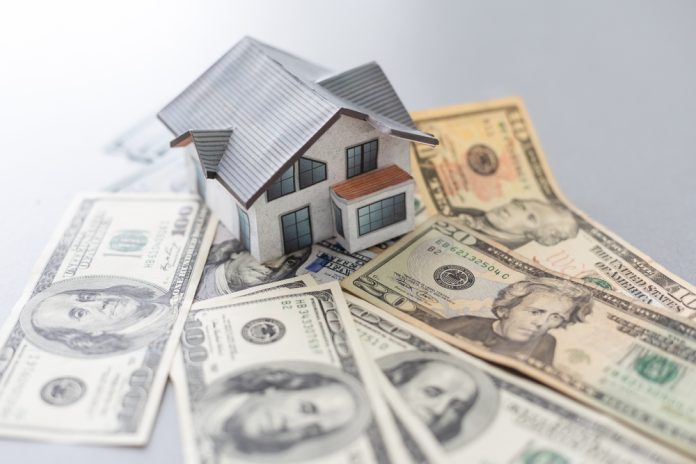Buying or selling a home is kind of like planning a wedding—you budget for the big things, only to realize later that a hundred little costs have snuck in when you weren’t looking.
As a buyer, you’re focused on the home price and down payment. As a seller, you’re thinking about getting your home show-ready and negotiating the best deal. But then—bam!—closing costs show up, demanding their share of the party. And just like wedding costs, they seem to keep growing no matter how much you try to plan ahead. Suddenly, you’re not just paying for the basics—you’re covering things you never even knew existed.
So, who pays for what? Let’s break it all down so you know what to expect, and hopefully, avoid any last-minute surprises at the closing table.
Do Buyers Pay Closing Costs? (Spoiler: Yes, They Do.)
Yes, buyers pay closing costs, and these often come as an unpleasant surprise. Most of the fees you’ll pay are directly related to securing your home loan. Let’s go over them so they don’t sneak up on you like an unexpected plot twist in a thriller movie. 
The Not-So-Fun Fees That Buyers Get Stuck With
1. Lender Fees
Even if your credit score is perfect, lenders still want their pound of flesh in the form of these fees. Think of lender fees as the cost of doing business with a mortgage company. These include:
- Loan origination fees (basically, a fancy way of saying “pay us for lending you money”)
- Credit report fees (because they need to see how responsible you are with money)
- Underwriting fees (to make sure you can actually afford the loan)
2. Home Appraisal
If the appraisal comes in low, you may have to negotiate with the seller or bring extra cash to the table to make up the difference.
Your lender wants to make sure the home is worth at least as much as the loan. It’s their way of ensuring they’re not lending $500K for a house worth $50K. Makes sense, right? You pay for this appraisal, and it usually runs a few hundred bucks.
3. Home Inspection
It’s also your chance to back out gracefully if the house turns out to have more problems than you bargained for. Not required, but highly recommended unless you like playing “What Horrors Lurk Behind the Walls?” A home inspection could save you from buying a money pit.
4. Homeowners Insurance
Shop around for the best rates, because just like with car insurance, prices can vary wildly between providers. Your lender will want to see proof that you have insurance in place before they finalize the deal. Sometimes, they’ll require you to prepay several months of premiums at closing, which is pretty common.
5. Title Costs
Think of title insurance as a security blanket—it protects you from hidden surprises like an old lien or a long-lost heir showing up with a claim to your new house.
- Lender’s title insurance (required)
- Owner’s title insurance (optional but highly recommended)
- Title search fees (to ensure no one else has a claim on your new home)
Why Loan Type Matters
Your closing costs might vary based on your loan type. If you’re putting down less than 20%, lenders often charge private mortgage insurance (PMI), which protects them in case you stop making payments. Some loans, like FHA and VA loans, come with their own fees and rules, so be sure to ask your lender what to expect. VA loans, for example, save buyers from PMI but still require a funding fee, which can be a hefty upfront cost.
Do Sellers Pay Closing Costs? (Oh, You Bet They Do.)
Sellers might think they’re just walking away with a big check, but not so fast—there are some deductions before payday. Most of the seller’s closing costs come right out of the sale proceeds, so while they don’t always require upfront cash, they definitely impact the bottom line.
The Costs That Chip Away at Sellers’ Profits
1. Title Costs
In some states, the seller is responsible for covering the cost of the owner’s title insurance policy. Lucky you! This cost ensures that the buyer won’t face any unexpected claims on the property after the sale is finalized.
2. Transfer Taxes
Some states and counties charge a tax when the property changes hands. It’s kind of like a real estate toll fee. The amount varies based on location, but it’s one of those unavoidable costs that can add up quickly.
3. Property Taxes
You’ll owe property taxes up until the day of closing. If you overpaid, you might get a refund. If you underpaid—guess what? That’s coming out of your proceeds. Property taxes are prorated, meaning the final amount depends on when the sale closes in the tax cycle.
4. HOA Fees
If your home is in a community with a homeowners association, those fees need to be up-to-date before closing. Nobody wants to buy a house with unpaid dues and an angry HOA lurking around. Sellers may also have to pay a transfer fee to the HOA, which covers administrative costs of updating ownership records.
5. Concessions
If the buyer negotiates for seller concessions (like helping with their closing costs), this will be deducted from your proceeds. Concessions can also include repairs or upgrades that were agreed upon during negotiations.
6. Mortgage Payoff
If you still owe money on your mortgage, the remaining balance will be paid off first before you see a dime of the sale price. Be aware that your lender might also charge a prepayment penalty, so check your loan terms in advance. This is a common expense and is typically deducted directly from the sales proceeds at closing.
Costs That Both Buyers and Sellers Might Pay
Some costs don’t discriminate—both buyers and sellers might end up paying them.
1. Attorney Fees
In some states, real estate attorneys are required to review contracts and closing documents. Even if it’s optional, it’s often a smart move to have a pro look things over. Having an attorney can also provide peace of mind, ensuring that all legal aspects of the transaction are handled correctly and there are no hidden surprises. 
2. Realtor Commissions
Sellers typically cover the real estate agents’ commissions, but in some cases, this can be negotiated differently. The standard commission is about 5-6% of the home’s sale price, split between the buyer’s and seller’s agents. Some sellers negotiate lower commission rates, especially in hot markets where homes sell quickly, potentially saving thousands of dollars.
How Much Are Closing Costs?
So, how much is this all going to cost you? While there’s no set number, here’s a rough breakdown:
- Buyers: Expect to pay around 2-5% of the home price in closing costs. That means on a $300,000 home, you could be looking at anywhere from $6,000 to $15,000 in fees before you even get the keys.
- Sellers: Many of the costs (like agent commissions) come out of the sale proceeds, so while they don’t always need to bring cash, it definitely impacts what they walk away with. If you’re selling a $400,000 home, real estate agent commissions alone could take a $20,000 bite out of your profits.
And here’s the kicker—you usually won’t get the final number until about three days before closing. Yep, real estate loves surprises. The closing disclosure, which outlines the exact amount you’ll owe, arrives just in time to make your stomach drop, but at least you’ll have a little time to prepare.
Can You Save Money on Closing Costs?
Tips for Buyers
- Negotiate for seller concessions to cover some of your costs. This could include covering part of your closing costs, buying down your interest rate, or covering necessary repairs.
- See if you qualify for first-time homebuyer or low-income assistance programs. Many state and local programs offer grants or low-interest loans to help cover both down payments and closing costs, so it’s worth exploring your options.
Tips for Sellers
- Negotiate agent commissions. Some agents are willing to lower their commission, especially if they represent both the buyer and the seller or if the home is in high demand.
- Offer incentives that don’t necessarily involve paying for closing costs. These could include covering home warranties, providing allowances for repairs, or throwing in appliances to make the deal more attractive to buyers.
Final thought…
At the end of the day, closing costs are just another part of the real estate process. But having a good agent can make them feel a lot less overwhelming. Whether you’re buying or selling, knowing what to expect and where you can negotiate can help you keep more money in your pocket—and that’s always a win.


